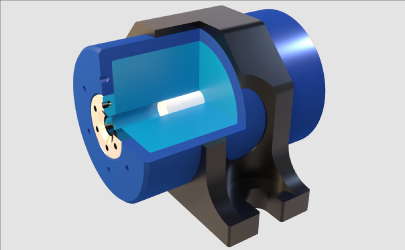Understanding the Growth of Faraday Rotators in Europe’s Photonics and Laser Industry

"The Europe Faraday rotator market is experiencing steady growth due to its essential functions in advanced photonics, optical isolators, and laser systems, particularly within the telecommunications, defense, and medical industries. This market is characterized by its specialization, focusing on precision applications that require non-reciprocal light transmission. Leading the market are Germany, the UK, and France, which benefit from strong research and development ecosystems as well as a well-established photonics sector. The increasing demand for fiber optics and quantum communication technologies is driving the need for reliable and efficient Faraday rotators. European manufacturers are prioritizing innovation and customization to enhance performance in high-power laser operations and across a broader range of wavelengths.
Despite its potential, the market remains niche, characterized by moderate volumes and high prices, which present challenges for new entrants. Additionally, the dependence on rare-earth materials such as terbium and yttrium creates vulnerability in the supply chain to geopolitical changes. Analysts predict slow but steady growth, driven by the rise of laser-based applications in areas like industrial automation and medical imaging. Furthermore, strategic partnerships between research institutions and manufacturers, along with government support for photonics development, are expected to bolster Europe’s position in this specialized market. Overall, the future looks promising, with precision engineering and high performance distinguishing competitive players."
The Europe Faraday Rotator market was valued at USD 205 Million in 2024 and is projected to reach USD 287 Million by 2032, with a compound annual growth rate (CAGR) of 4.5% from 2025 to 2032.
The push for 5G infrastructure and data centers is further fueling market growth since optical isolators are crucial for the functioning of high-speed fiber-optic networks. Plus, Europe’s commitment to renewable energy and smart grid technologies is leading to increased use of Faraday Rotators in magneto-optical sensing applications.
There’s also a rising demand for precision laser systems across sectors like defense, healthcare, and industrial manufacturing. Supportive government policies, along with research funding and collaborations between industry and academia, are paving the way for swift technological progress.
Europe is well-positioned for substantial growth in the Faraday Rotator market, positioning itself as a major hub for the development of optical components, thanks to its strong emphasis on sustainable and innovative optical solutions.
Growing investments in high-speed fiber-optic networks and 5G infrastructure are driving demand for Faraday Rotators as essential components in optical isolators.
Europe is making significant investments in its optical communication infrastructure, focusing particularly on the expansion of 5G networks and the deployment of fiber-optic broadband. Faraday rotators are essential components in optical isolators, which help prevent back reflections in high-speed fiber-optic transmission systems. Countries like Germany, the UK, and France are at the forefront of 5G expansion, which necessitates advanced optical components to ensure stable and efficient signal transmission. Furthermore, the growing demand for high-bandwidth and low-latency networks in smart cities and Internet of Things (IoT) applications is driving an increased need for Faraday rotators.
Europe is at the forefront of quantum technology research, with increasing applications of Faraday Rotators in quantum optics and computing.
Europe stands as a global leader in quantum computing and photonics research, with renowned institutions like the Max Planck Institute and CERN at the forefront of innovation. Faraday rotators play a crucial role in quantum optics, especially in areas such as quantum entanglement and secure quantum communication systems. Both governments and private enterprises are investing in research programs that focus on photonic integrated circuits and quantum computing, which heavily depend on magneto-optical components. As European nations strive for technological sovereignty in advanced computing, the demand for Faraday rotators is expected to increase substantially.
Expanding use of laser-based technologies in manufacturing, defense, healthcare, and scientific research is fueling market growth.
The European industrial sector is experiencing a swift adoption of laser-based technologies for applications such as cutting, welding, and material processing. Faraday rotators improve the performance of laser systems by reducing interference and optimizing the direction of signals. Key industries driving this demand include automotive, aerospace, and semiconductor manufacturing. Germany, known for its precision manufacturing, is at the forefront of laser system integration, significantly contributing to market growth.
The rapid growth of data centers across Europe is increasing the need for high-performance optical components, including Faraday Rotators.
The rapid growth of data centers in Europe, driven by the increasing adoption of cloud services, is creating a heightened demand for high-performance optical components. Faraday rotators play a crucial role in fiber-optic communication within these data centers by ensuring smooth data transmission and preventing optical feedback. As hyperscale data centers continue to emerge in countries like Ireland, the Netherlands, and Sweden, the market for Faraday rotators is projected to expand significantly.
The adoption of magneto-optical sensing systems in renewable energy applications, such as solar power monitoring and smart grid systems, is boosting demand.
Europe's emphasis on renewable energy and sustainability is promoting the use of Faraday Rotators in magneto-optical sensing applications. These components play a crucial role in monitoring solar power systems and smart grid networks, which helps improve energy efficiency and stability. Countries such as Germany and Denmark, which are leaders in renewable energy initiatives, are driving the demand for advanced optical technologies to enhance the monitoring and optimization of power systems.
Competitive Landscape
Some of the major companies operating within the Faraday Rotator market are: AFW Technologies, Newport, Thorlabs, Haphit, Leysop Ltd, Kohoku Kogyo, Coherent, Advanced Fiber Resources, DK Photonics, Opneti and Others.